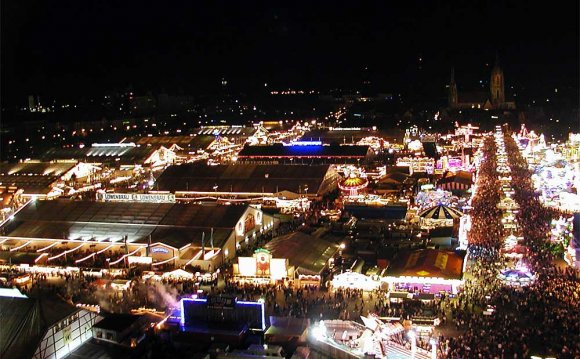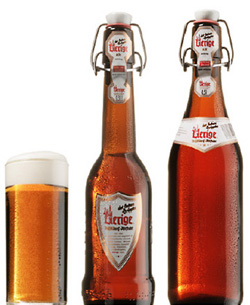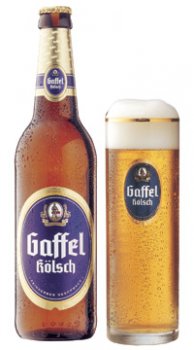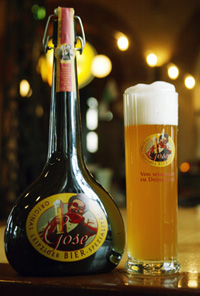
 Oktoberfest is a bad thing for good beer.
Oktoberfest is a bad thing for good beer.
Don't get me wrong, there will be some world-class beer served in the overstuffed Oktoberfest tents (though most of the tipsy tourists will be too wasted to notice). But every drop of it will be Munich-style beer. The enduring prominence of Oktoberfest in the global imagination means many outside Germany tend to think what happens for a few weeks on a field in southern Bavaria represents the nation's finest brewing accomplishments. It's as if everyone in Germany thought American culture and cuisine begins and ends with the Iowa State Fair.
You can see this pernicious misimpression at work in German-themed bars around the world. My colleagues in Slate's New York offices need only walk a few blocks to a West Village bar called Lederhosen, which is stuffed from floor to ceiling with Bavarian kitsch. Many "German" bars abroad are really Bavarian, with taps that rarely venture beyond the six major Munich brewers. This tendency to equate Germany with Bavaria is a shame, because Germany is a diverse country with 81 million people spread across distinct regions with distinct cuisines, cultures, and brewing traditions.
 Many Germans proudly declare that they have never been and will never go to Oktoberfest. (Though it should be noted that for all the grief some Germans give Oktoberfest, they don't discourage foreigners from checking it out. Fierce regional rivalries can be set aside in the common interest of a tourism-revenue bonanza.) Being equated with Oktoberfest drives the rest of Germany nuts. It doesn't help that Oktoberfest is just one of a long list of grievances Germans have with Munich, from the region's strict social conservatism to Bayern Muenchen, the local soccer powerhouse with a reputation for using its deep pockets to steal the best players from other teams.
Many Germans proudly declare that they have never been and will never go to Oktoberfest. (Though it should be noted that for all the grief some Germans give Oktoberfest, they don't discourage foreigners from checking it out. Fierce regional rivalries can be set aside in the common interest of a tourism-revenue bonanza.) Being equated with Oktoberfest drives the rest of Germany nuts. It doesn't help that Oktoberfest is just one of a long list of grievances Germans have with Munich, from the region's strict social conservatism to Bayern Muenchen, the local soccer powerhouse with a reputation for using its deep pockets to steal the best players from other teams.
So unless you're actually celebrating Oktoberfest in Bavaria this year, why not make a point of enjoying everything else Germany has to offer by drinking the products of breweries far from the festival's beer tents? There will be plenty of time later to sample the great wheat beers and lagers coming from Munich.
 Below are five great German beers to get you started. The list is absolutely not intended to crown these individual beers as champions of their particular style. Some may very well be best in class, but I chose these beers because they are high quality and accessible outside Germany.
Below are five great German beers to get you started. The list is absolutely not intended to crown these individual beers as champions of their particular style. Some may very well be best in class, but I chose these beers because they are high quality and accessible outside Germany.
Uerige's "Classic"
This is an Altbier from a legendary master of that style, which is getting a lot of attention as of late among craft brewers and beer experts outside Germany, who think this complex, full-flavored beer should be better known abroad. It's dark in color and made with ale yeast but stored and conditioned for longer than is typical of an ale. Alt is German for old. Some believe the style's name originally referred not to its aging process, but to the age of the style, which preceded lager. In any case, the result is a beer of unusual smoothness and superb balance. The crisp hop finish provides a perfect counterweight to the rich caramel and dark fruit flavors from the malt.
Altbier is the home style of Duesseldorf, in Germany's Rhineland region. If you're fortunate enough to visit Uerige's beer garden there, you can taste it straight from the tap. Only beer and apple juice are on offer there, so beverage decisions don't take long. If you are really lucky, you'll visit on a day when their Sticke is available. That's a more robust yet still elegant version of Altbier, by tradition brewed only a couple of times a year as a special treat for loyal customers.
Aecht Schlenkerla's Rauchbier Maerzen
Aecht Schlenkerla's Rauchbier Maerzen
Rauchbier, or smoked beer, is a singular German style with a centuries-long heritage. It's brewed in the Bavarian town of Bamberg. Though it is in the same state as Munich, Bamberg lies well to the north, in the Franconia region. People there think of themselves as quite different from their neighbors to the south, pointing to their different history, accent, and cuisine. And they are rightly proud of their beer, which tastes like nothing from Munich.
RELATED VIDEO












